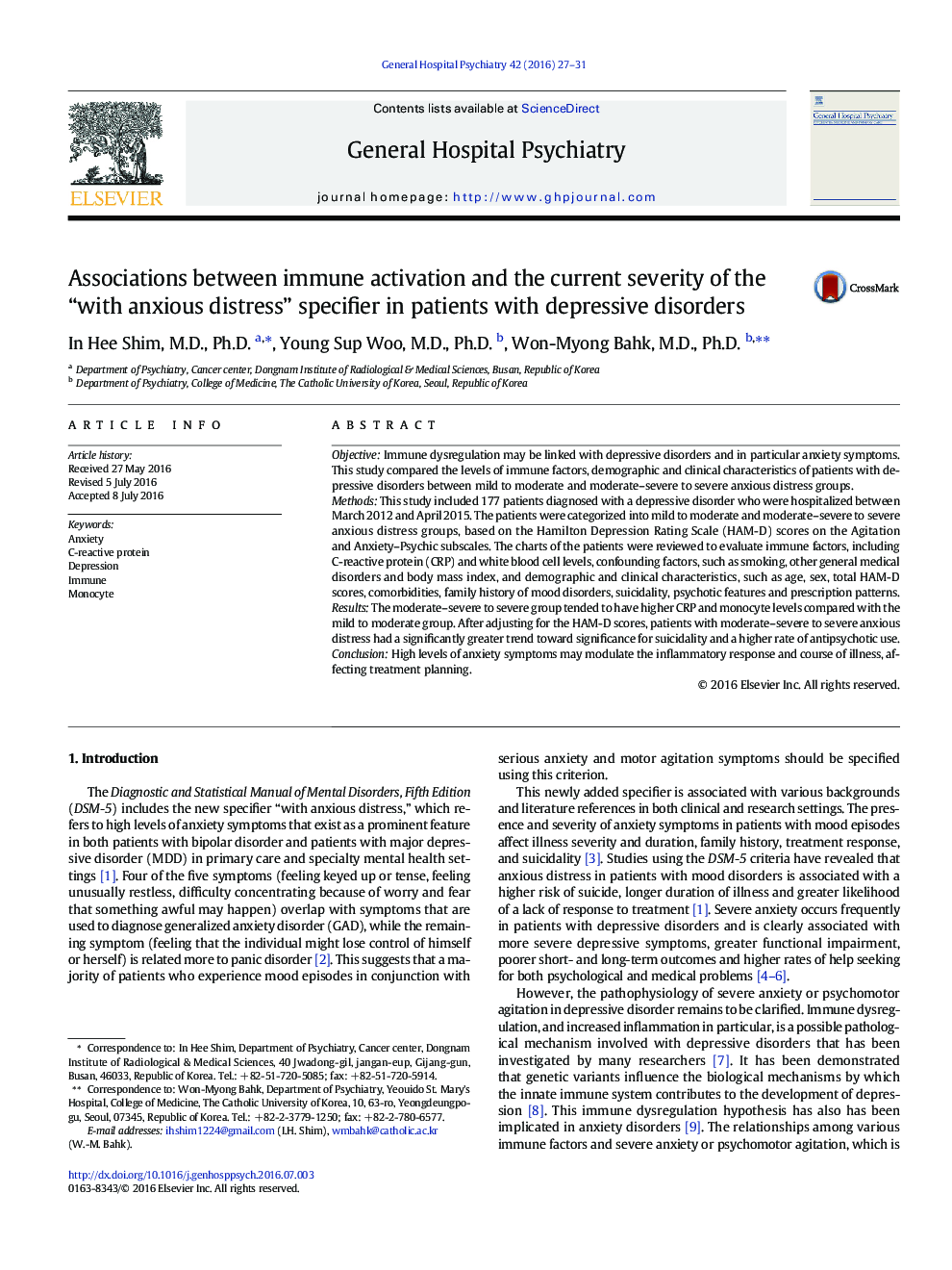| Article ID | Journal | Published Year | Pages | File Type |
|---|---|---|---|---|
| 3237527 | General Hospital Psychiatry | 2016 | 5 Pages |
ObjectiveImmune dysregulation may be linked with depressive disorders and in particular anxiety symptoms. This study compared the levels of immune factors, demographic and clinical characteristics of patients with depressive disorders between mild to moderate and moderate–severe to severe anxious distress groups.MethodsThis study included 177 patients diagnosed with a depressive disorder who were hospitalized between March 2012 and April 2015. The patients were categorized into mild to moderate and moderate–severe to severe anxious distress groups, based on the Hamilton Depression Rating Scale (HAM-D) scores on the Agitation and Anxiety–Psychic subscales. The charts of the patients were reviewed to evaluate immune factors, including C-reactive protein (CRP) and white blood cell levels, confounding factors, such as smoking, other general medical disorders and body mass index, and demographic and clinical characteristics, such as age, sex, total HAM-D scores, comorbidities, family history of mood disorders, suicidality, psychotic features and prescription patterns.ResultsThe moderate–severe to severe group tended to have higher CRP and monocyte levels compared with the mild to moderate group. After adjusting for the HAM-D scores, patients with moderate–severe to severe anxious distress had a significantly greater trend toward significance for suicidality and a higher rate of antipsychotic use.ConclusionHigh levels of anxiety symptoms may modulate the inflammatory response and course of illness, affecting treatment planning.
